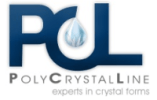


PolyCrystalLine was founded in 2005 as a business idea developed in an academic context. The company was born out of the Molecular Crystalline Engineering (MCE) group of research coordinated by Professor Dario Braga in the Department of Chemistry “G. Ciamician” of the University of Bologna.
The MCE group has been working for many years in the field of crystal polymorphism and is one of the most specialised in Italy. In decades of collaboration with the pharmaceutical industry, the MCE group has developed its own techniques to induce and check the formation of polymorphic or solvate (generally hydrated) crystal forms.

In 2007 PolyCrystalLine moved its activities out of the Department of Chemistry, transferring its university know-how into a dedicated site in the suburbs of Bologna.
In September 2009 PCL moved premises into larger custom-built laboratories and offices in Medicina.
PolyCrystalLine is a young dynamic company which has established itself as a leader in research and characterisation of solid-state compounds, especially in the pharmaceutical sector.

We have developed a university background into a business venture; blending academic know-how with business-like agility and flexibility. By working closely with the academic world, we are able to apply an innovative and avant-garde approach to the solving of scientific, commercial and patenting problems.
Our extensive experience in the characterisation of solid-state compounds and the study of polymorphism has led to the development of specific and flexible research protocols. These can be adapted to meet the needs of the pharmaceutical industry. We are able to satisfy the most varied research needs and budget requirements, ranging from in-depth analysis of APIs and compounds/solvates to quick low-cost screening and studies involving patent issues.

PolyCrystalLine
Via F.S. Fabri 127/1
Medicina 40059
Bologna
Italy
Tel. +39 (0) 51 6970791
Email: Info@polycrystalline.it
Web-site: www.polycrystalline.it









